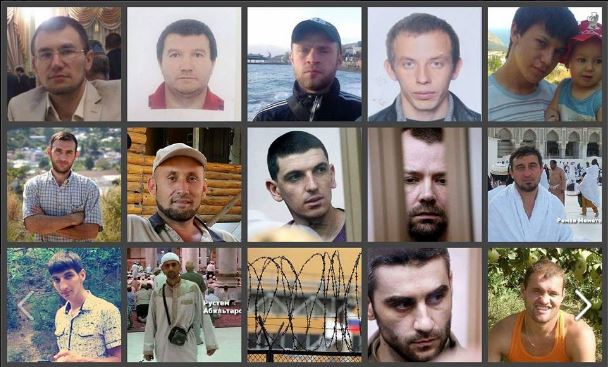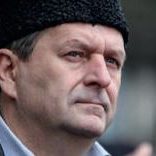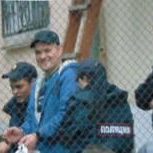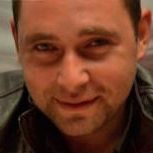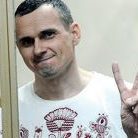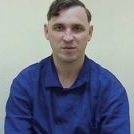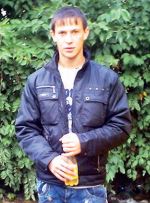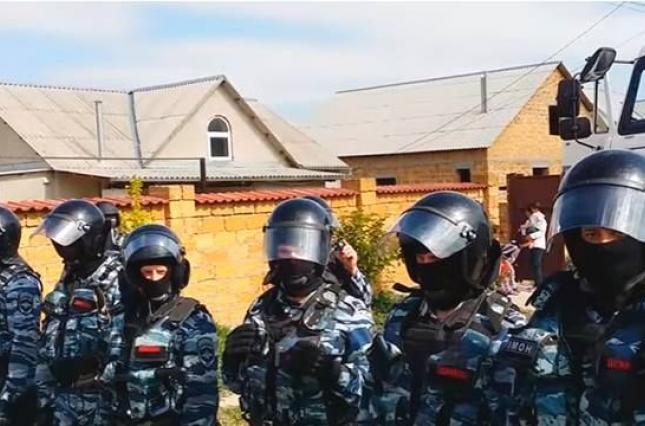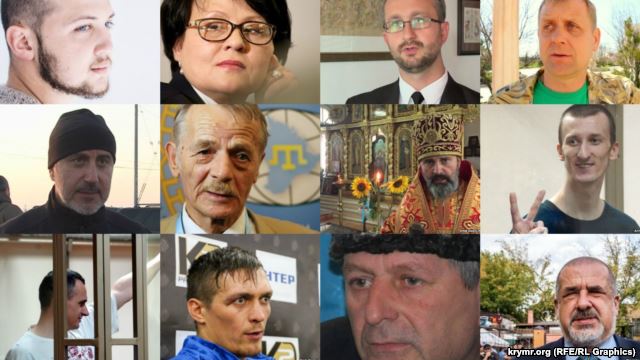The World Congress of the Crimean Tatars has declared on 31 July 2016 that 9 people were killed, 15 kidnapped, and 25 detained as political prisoners in Crimea since March 2014 for resisting Russia’s occupation and illegal annexation of Crimea.
The topic of abductions and killings was especially poignant, as this 5th meeting of the World Congress of Crimean Tatars is the first one to take place without Ervin Ibragimov, a Crimean Tatar and member of its coordination council who was abducted on May 24.
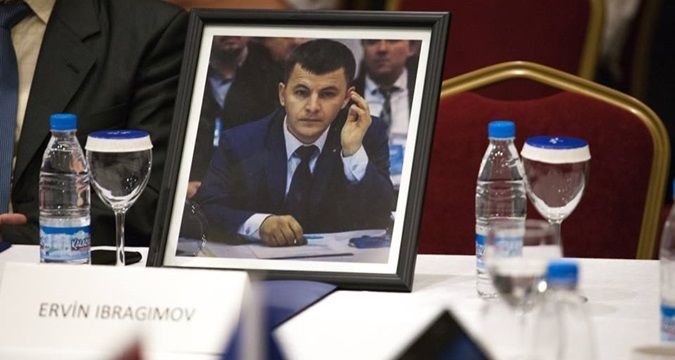
As Russia continues falsely asserting that it illegally annexed Crimea was “without a drop of blood,” US presidential candidate Donald Trump praises Vladimir Putin’s invasion of Ukraine as “so smart,” and a delegation of 11 French MPs take part in a propaganda show legitimizing the Crimean occupation, it is worth remembering the victims of the Russian regime. Information about political prisoners, as well as killed and abducted persons, are available in two booklets [1, 2] distributed by the Crimean Tatar Resource Center, as well as this article by Halya Coynash of the Kharkiv Human Rights Group.
Killed people
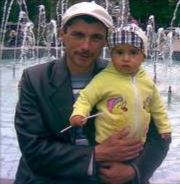 The first to die was Reshat Ametov, a Crimean Tatar activist who was abducted by camouflaged men in the center of Simferopol on 3 March 2014, while he was peacefully protesting against the occupation of his native Crimea. Despite his abduction being videotaped, the Russian occupation authorities have suspended the case, failing to identify the people involved.
The first to die was Reshat Ametov, a Crimean Tatar activist who was abducted by camouflaged men in the center of Simferopol on 3 March 2014, while he was peacefully protesting against the occupation of his native Crimea. Despite his abduction being videotaped, the Russian occupation authorities have suspended the case, failing to identify the people involved.
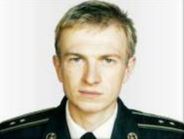
Serhiy Kokurin was an ensign of a Ukrainian military unit in Crimea. He was shot to death on 18 March 2014 (two days after the illegal “referendum” on the annexation of Crimea) by Russian militaries while being on the observation tower of his unit.
Other people mentioned in the report: Stanislav Karachevsky; Bilal Bilyalov; Edem Asanov; Muhiddin Kachok; Osman Ibragimov; Mehmet Salimov; Mumin Aliyev; Marko Ivanyuk.
Missing people
Pro-Ukrainian activists. In March 2014, just after unmarked Russian troops started taking over strategic objects in Crimea, three activists with pro-Ukrainian positions went missing in Crimea. Valeriy Vashchuk and Ivan Bondarets, members of the self-defense of Kyiv’s Maidan, went missing on March 7, after coming to Crimea with a Ukrainian flag in their hands. Vasyl Chernysh, a resident of Crimea, was reportedly helping Ukrainian military divisions who were in a suspended position, having been given orders to avoid bloodshed, when he went missing on March 15. There is no information about the men on the websites of the Russian law enforcement agencies.
Members of the public initiative Ukrayinskyi Dim. On 22 May 2014, Leonid Korzh, activist of the Crimean pro-Ukrainian organization Ukrayinkyi Dim, went missing. Timur Shaimardanov, also a member of Ukrayinskyi Dim, started searching for him and went missing. Seyran Zinedinov, again a member, searched for them both and also disappeared. Criminal cases have been opened but have brought no results.
Son and nephew of Crimean Tatar national movement activist. Unknown persons abducted Isliam Dzeparov, the son of a Crimean Tatar activist and former Crimean Tatar Mejlis deputy Abdurashyd Dzeparov and his nephew Dzhevdet Isliamov on 27 September 2014 and drove away to an unknown location. Abdurashyd sees the influence of Russian special services in the abduction and said that he was being followed prior to the abduction. An investigation has been launched but has brought no results.
Crimean Tatar World Congress delegate
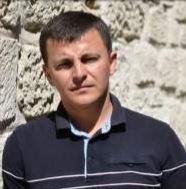
Ervin Ibragimov, Board Member of the Coordination Council of the World Congress of Crimean Tatars, was stopped while driving his car on 24 May 2016 near Bakhchysarai. After that, he was pushed into a car and driven away through the forest. An investigation has been launched but has brought no results.
Others named in the report are Crimean Tatars and Ukrainians: Eskender Apselyamov, Mukhtar Arislanov, Arlen Terekhov, Ruslan Ganiev, Marsel Alyautdinov, Arsen Aliev, Fedir Kostenko (the latter is the father of political prisoner Oleksandr Kostenko).
Political prisoners
The report mentioned 25 Crimean political prisoners. Many of them have been declared political prisoners by the Russian Memorial human rights organization.
The 26th of February Case. On 26 February 2014, a large pro-Ukrainian demonstration, largely made up of Crimean Tatars, was held in front of the Crimean Parliament, where armed unmarked military men were preparing to assist the voting in of a new Russian government under the barrel of a gun. A counter demonstration was held nearby. Clashes between the two camps ensued, after which two protesters died, one of them from a heart attack. Almost a year later, politically motivated criminal cases were opened against supporters of Ukraine’s territorial integrity, ludicrously judging them by Russian laws for events that took place while Crimea was legally Ukrainian territory. Video footage of the events shows that they three men did not engage in any violent activity, yet they are still being prosecuted.
Akhtem Chiyhoz, Deputy Head of the Crimean Tatar Mejlis, is the most high-ranking of those detained. Ali Asanov and Mustafa Dehermendzhi Crimean Tatars were pressured to testify against him, but refused to. Mr.Chiyhoz himself has stated that he is being held to intimidate all the Crimean Tatars on the peninsula, who are the largest opponents of Russian occupation: “I consider that due to my political beliefs I am being held as a hostage. They are attempting to intimidate all the people at the cost of my arrest.”
The “Crimean terrorists” case. Four Crimean activists had been detained in May 2014, accused of preparing terrorist attacks, and sentenced to prison. Film director Oleg Sentsov was declared the leader of this “terrorist group,” and the others – Oleksiy Chyrniy, Oleksandr Kolchenko, and Oleksiy Chyrniy – his accomplices. Oleg Sentsov was sentenced to 20 years in prison; the others – to 10 and 7 years. Russia exchanged Gennadiy Afanasiev, along with another Ukrainian hostage, Yuriy Soloshenko, for two pro-Russian separatists on 14 June 2016. The rest are still imprisoned.
The case of Hizb ut-Tahrir. Hizb ut-Tahrir is an Islamic political organization which is legal in most countries, yet banned in Russia and a handful of other countries as “terrorist.” Crimean Tatars in Crimea are now facing blanket accusations in being members of Hizb ut-Tahrir, despite the organization not having any formal membership criteria. Thus, basically any Crimean Tatar in Crimea is eligible for repression under accusation of belonging to the organization without evidence. To date, 10 people have been illegally detained on allegations of belonging to Hizb ut-Tahrir: Rustem Vaitov, Nuri Primov, Ruslan Zeytullaev, Ferat Sayfullaev, Emir Usein-Kuku, Muslum Aliyev, Refat Alimov, Arsen Dzhepparov. Among them, are ordinary people, activists, a chairman of a local Muslim community. The case of Emir Usein-Kuku demands special attention, as the man was an observer of the Crimean Contact Group of Human Rights dealing with kidnappings and intimidation of Crimean Tatars in the Yalta region.
Special cases. Hayser Dzhemilev, the son of Crimean Tatar leader Mustafa Dzhemilev, has been recognized as being used as a hostage against his influential father. Oleksand Kostenko, a Euromaidan activist, is being prosecuted for throwing a stone against an officer during the Euromaidan revolution in Kyiv, Ukraine – something which the Russian occupation authorities have no jurisdiction over. Yuriy Ilchenko, a blogger from Crimea, is being prosecuted for criticizing Russia’s occupation of Crimea and aggression in Donbas. The document also mentions Mueddin Alivapov.




